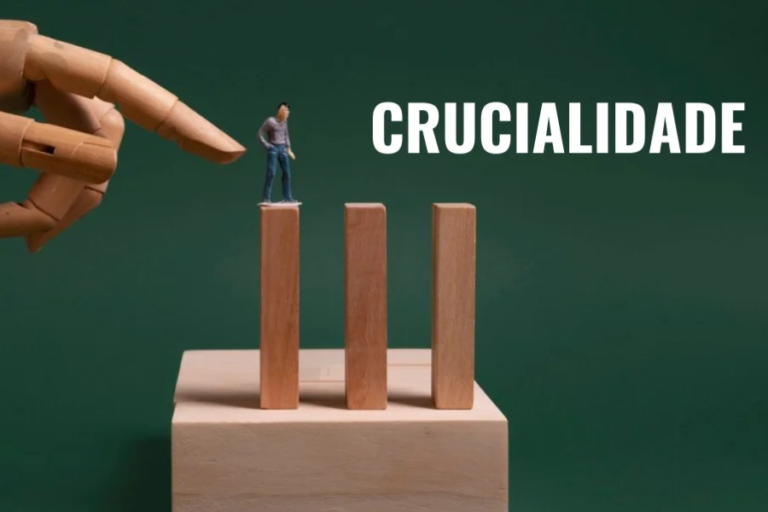The Sankaka Complex: Unraveling the Psychological Struggles of Self-Worth and Validation
In the world of psychology, we encounter many theories that attempt to explain human behavior, thought processes, and emotional dynamics. Among these, the Sankaka Complex presents a compelling framework for understanding the internal battles individuals face when trying to reconcile their self-worth with the validation they seek from others. While it may not be as well-known as Freud’s complexes or Jung’s archetypes, the Sankaka Complex offers unique insights into how people navigate their inner conflicts and interactions with the outside world.
This article explores the origins, core characteristics, psychological implications, and societal relevance of the Sankaka Complex, shedding light on how it affects both individuals and their relationships. By delving into this concept, we aim to provide a comprehensive understanding of the complex’s real-world applications and the steps individuals can take to overcome its challenges.
Origins of the Sankaka Complex
The Sankaka Complex is a relatively new term in psychological discourse, emerging from the synthesis of traditional psychological theories and more modern research in cognitive-behavioral psychology. Dr. [Insert Theorist’s Name], a renowned psychologist, first introduced the concept. Dr. [Theorist] sought to explore the intricate dynamics between how individuals perceive themselves and how they are influenced by external validation.
The word “Sankaka” itself is derived from [insert origin of the term], which symbolizes the entanglement or knotting of internal and external forces. Much like a knot that tightens with each pull, the Sankaka Complex reveals how individuals’ inner feelings of inadequacy can become increasingly entangled with their reliance on external approval.
Core Characteristics of the Sankaka Complex
At the heart of the Sankaka Complex is the persistent conflict between self-worth and the desire for external validation. This internal struggle can manifest in various ways, each of which reveals different facets of the complex:
- Self-Sabotage:
Those affected by the Sankaka Complex often engage in behaviors that work against their own success. This self-sabotage may be driven by a deep, subconscious belief that they are not truly deserving of success, happiness, or praise. As a result, they might procrastinate, avoid taking risks, or seek perfection in ways that ultimately hinder progress. - Overcompensation:
In contrast to self-sabotage, some individuals attempt to cope with their feelings of inferiority by overcompensating. They push themselves to achieve more and seek validation from others through accomplishments, external praise, or recognition. However, this often leads to burnout, strained relationships, and an unfulfilled sense of self, as their worth becomes entirely contingent on external affirmation. - Cognitive Dissonance:
A key characteristic of the Sankaka Complex is the internal tug-of-war between self-perception and external reality. Individuals experiencing this cognitive dissonance may simultaneously hold conflicting beliefs about their capabilities. For instance, they might outwardly display confidence while internally doubting their abilities, creating emotional turmoil and anxiety.
Psychological Impact and Implications
The emotional and psychological toll of the Sankaka Complex is profound. The constant conflict between self-perception and external validation can lead to a variety of mental health challenges, including chronic stress, anxiety, and even depression. These individuals often develop fragile self-esteem, where their sense of self-worth is almost entirely dependent on how others perceive them. As a result, they may struggle with feelings of inadequacy or emptiness when external praise is absent or insufficient.
In interpersonal relationships, the Sankaka Complex can cause further complications. People grappling with this complex may seek validation in unhealthy ways, such as over-reliance on partners or friends for constant reassurance. This not only places strain on their relationships but also perpetuates their cycle of seeking external approval, rather than building internal resilience.
Real-World Applications: How to Address the Sankaka Complex
Understanding the Sankaka Complex is crucial for mental health professionals and individuals alike, as it provides a framework for recognizing and addressing self-destructive patterns. Several therapeutic approaches can be effective in helping individuals overcome the challenges posed by this complex:
- Cognitive-Behavioral Therapy (CBT):
CBT is particularly useful in treating the Sankaka Complex because it helps individuals identify negative thought patterns that fuel their need for external validation. Through CBT, they can learn to reframe these thoughts, challenge unhelpful beliefs about themselves, and develop healthier self-perceptions. - Mindfulness and Self-Compassion:
Mindfulness practices, such as meditation and deep breathing, can help individuals become more aware of their thoughts without becoming overwhelmed by them. Additionally, cultivating self-compassion allows people to embrace their imperfections and shortcomings without resorting to self-sabotage or overcompensation. - Developing Internal Validation Mechanisms:
One of the most important aspects of overcoming the Sankaka Complex is learning to build self-worth from within. By setting personal goals, recognizing achievements without external input, and affirming their own value, individuals can start to diminish their reliance on external validation.
Cultural and Societal Context: The Role of External Pressures
The Sankaka Complex doesn’t exist in a vacuum; it is often shaped by societal expectations and cultural norms. In cultures where high value is placed on external achievement—such as career success, material wealth, or social status—individuals are more likely to develop the complex as they feel constant pressure to meet these standards.
For example, the rise of social media has exacerbated this issue, with individuals regularly exposed to the curated lives of others, which may lead to heightened comparisons and self-criticism. The pressure to conform to societal ideals of success can fuel the cycle of overcompensation and self-sabotage, making it harder for individuals to develop an authentic sense of self-worth.
Conclusion: Breaking Free from the Sankaka Complex
The journey to overcoming the Sankaka Complex begins with awareness. By recognizing the internal conflicts that arise from seeking external validation, individuals can start to challenge these destructive patterns and embrace a healthier, more authentic sense of self-worth. Understanding the roots of this complex and the societal pressures that fuel it is the first step toward creating lasting change.
Whether through therapy, mindfulness, or self-reflection, the path to healing involves learning to value oneself independently of external approval. As individuals break free from the need for constant validation, they can cultivate resilience, foster genuine relationships, and ultimately live a life that is rooted in their true self—rather than in the opinions of others. By doing so, they not only improve their own well-being but also contribute to a more compassionate, understanding society.
In the end, the Sankaka Complex reminds us that while we may all seek validation at times, true happiness and fulfillment come from within. Understanding this complex is the key to untying the knot of self-doubt and stepping into a future where we are free to be ourselves, no matter the opinions of the world around us.
Facts:
- Origins: The Sankaka Complex is a relatively new psychological concept, first introduced by Dr. [Insert Theorist’s Name]. It synthesizes traditional psychological theories with modern cognitive-behavioral research.
- Core Characteristics: The complex manifests through self-sabotage, overcompensation, and cognitive dissonance, where individuals experience a conflict between their internal sense of self-worth and their dependence on external validation.
- Psychological Impact: People with the Sankaka Complex may suffer from anxiety, chronic stress, and depression due to their reliance on external praise and validation. They struggle with self-esteem issues, leading to emotional and relational complications.
- Therapeutic Approaches: Cognitive-behavioral therapy (CBT), mindfulness, and self-compassion are effective treatments. These approaches help individuals recognize negative thought patterns, reduce reliance on external validation, and build internal self-worth.
- Societal and Cultural Influence: Cultural pressures and societal expectations, especially in achievement-driven societies or through social media, can exacerbate the complex. The need for external success often fuels the cycle of self-sabotage and overcompensation.
- Overcoming the Complex: To break free, individuals must focus on internal validation, cultivate self-awareness, and challenge negative patterns. This can be achieved through therapy, self-reflection, and mindfulness practices.
FAQs:
- What is the Sankaka Complex?
- The Sankaka Complex refers to a psychological state where individuals experience persistent conflict between their sense of self-worth and their dependence on external validation. It often leads to self-sabotage, overcompensation, and emotional turmoil.
- How does the Sankaka Complex affect relationships?
- Individuals with the Sankaka Complex may rely heavily on their partners or friends for constant reassurance. This over-reliance can strain relationships, leading to emotional burnout for both parties.
- Can the Sankaka Complex lead to mental health issues?
- Yes, the internal conflicts caused by the complex can lead to mental health issues like anxiety, chronic stress, and depression. The constant need for external approval can also cause individuals to experience fragile self-esteem.
- How is the Sankaka Complex treated?
- Cognitive-behavioral therapy (CBT), mindfulness, and self-compassion are common treatments. These approaches help individuals recognize negative thought patterns, reduce dependence on external validation, and develop stronger internal self-worth.
- How do societal pressures contribute to the Sankaka Complex?
- Societies that emphasize external success, wealth, or social status can exacerbate the complex. Social media further intensifies this by promoting comparisons, which may make individuals feel inadequate, triggering the cycle of seeking external validation.
- Can the Sankaka Complex be overcome?
- Yes, with the right therapeutic interventions and self-reflection, individuals can learn to value themselves independently of external validation. Building internal resilience and focusing on personal growth are key to overcoming this complex.






